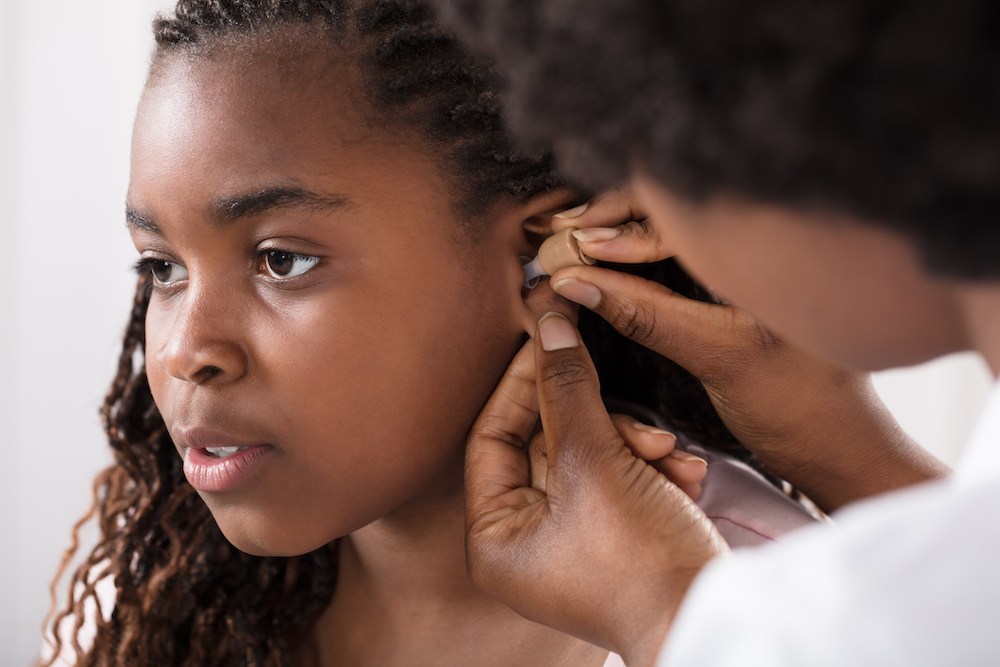Should I Be Worried About Mild Ear Discomfort?
Mild ear discomfort is something most people experience at some point,

By: admin | May 31, 2024
If you’ve ever battled a sinus infection or a stubborn head cold, you’re likely familiar with how these ailments can impact your ears and hearing. You may have experienced sensations of blockage or pressure, along with difficulty hearing. However, it’s important to recognize that seasonal allergies can also affect your hearing in similar ways. Triggers like pollen, pet dander, dust or mold can provoke allergic reactions, leading to symptoms such as sneezing, itching, and congestion. While allergies can cause various discomforts like breathing issues and watery eyes, their impact on hearing can significantly disrupt your daily activities.
Seasonal allergies are a bit of a paradox. They are a natural defense mechanism against harmful substances, but they can also cause discomfort and potentially impact your hearing health.
Seasonal allergies flare up when your immune system reacts to an outdoor allergen such as pollen. Typical symptoms include sneezing, a runny nose, itchy eyes, and sometimes even temporary hearing loss. This temporary hearing loss happens when the Eustachian tube in your ear becomes congested due to an allergic reaction, blocking sound from reaching the inner ear. While this is usually temporary and reversible once the allergy is managed, if left unattended, it may lead to persistent hearing problems. Understanding these aspects of seasonal allergies is essential for maintaining optimal hearing health during allergy season.
When our bodies encounter allergens, our immune system sees these substances as threats and goes on the defensive. This response can sometimes affect our hearing.
Here’s how it works:
Understanding that allergies and ear health are interconnected is important. The same reaction that causes your nose to run and eyes to itch can also affect your ears. By recognizing this link, you can take proactive steps to protect your hearing during allergy season.
As spring unfolds, allergies can take a toll on your ears. Allergens like pollen and mold spores, common in springtime, can lead to inflammation in your ears and cause temporary hearing loss. This is due to the swelling and blockage in your Eustachian tubes, which hinders sound from reaching your inner ear.
To minimize these effects:
Being aware of the signs your body is giving you is important, especially when it comes to allergies and hearing loss. Indicators that your allergies may be affecting your hearing include a feeling of fullness or pressure in the ears, difficulty hearing quiet sounds or conversations, experiencing a ringing sound in the ears, and frequent earaches.
If you notice any of these symptoms, it’s important not to ignore them. Hearing loss from allergies can be temporary, but if left unchecked, it could potentially lead to more persistent issues. You’re not alone in this; many people experience these symptoms during allergy season. There’s no need to worry – a visit to your local hearing instrument specialist can help identify any problems and guide you on the best course of action. With their help and some simple preventive measures, you can enjoy the beauty of spring without compromising on your hearing health.
You might be wondering, “How can something that causes sneezing and itchy eyes also affect my ears?” Well, it all comes down to your body’s response to allergens. When your immune system detects an allergen like pollen, it releases chemicals called histamines. These histamines can cause inflammation in various parts of your body, including the Eustachian tubes in your ears.
When these tubes become inflamed, they can block sound from reaching your inner ear, leading to temporary hearing loss. This is why you might experience hearing difficulties during allergy season. But don’t worry! By managing your allergies effectively and scheduling regular check-ups with a hearing professional, you can ensure that this temporary problem doesn’t turn into a long-term issue. It’s time to take control of your health and protect your ears this allergy season!
Inflammation plays a significant role in allergy-induced hearing loss. In response to allergens like pollen or mold spores, your body releases histamines. These chemicals cause inflammation and swelling in various parts of the body – including your ears. Specifically, the Eustachian tubes connecting your middle ear to your throat can become inflamed and swollen. This inflammation can block sound from reaching your inner ear, causing temporary hearing loss.
Understanding this connection is important as it highlights the importance of managing allergies effectively during allergy season. By keeping allergies under control, you minimize inflammation and its potential impact on your hearing health. Regular check-ups with a hearing instrument specialist are also key in ensuring any issues are promptly addressed. After all, being proactive about your health means enjoying spring without having to worry about its effects on your hearing.
Spring allergies can cause temporary hearing loss, but it’s important to understand that this is not the same as permanent hearing loss. Temporary hearing loss from allergies occurs when inflammation and swelling, caused by the body’s reaction to allergens, block the Eustachian tubes in your ears. This blockage can prevent sound from reaching your inner ear, leading to temporary hearing difficulties. Once the allergies are managed and inflammation subsides, normal hearing usually returns.
However, if your hearing doesn’t improve after allergy season or if you’re experiencing persistent difficulties with your hearing, it may be time to see a specialist. It’s possible that what you’re experiencing isn’t just a result of seasonal allergies but could be a sign of more permanent hearing loss.
A prevalent hearing issue linked to allergies is tinnitus, a condition characterized by perceived ringing or buzzing sounds in the ears. However, the specific sound experienced by individuals with tinnitus can vary widely. Typically, tinnitus occurs when the cochlea or sensory hairs within the ear are damaged or obstructed. Allergies are among the factors known to contribute to tinnitus, alongside loud noises, certain medications or head injuries.
For those dealing with tinnitus caused by allergies, certain medications may offer relief. Antihistamines, commonly used to treat allergies, have been found to alleviate tinnitus symptoms associated with allergic reactions. By drying out the sinuses, antihistamines may improve ear function and reduce tinnitus severity. Over-the-counter decongestants and nasal corticosteroids are also options for addressing allergy-related tinnitus, as they help alleviate congestion and inflammation.
Springtime brings an increase in outdoor allergens like pollen and mold spores. These allergens can trigger allergies, leading to discomfort and even temporary hearing loss. But fear not! There are ways to reduce your exposure to these springtime nuisances and protect your hearing health.
Keeping windows closed on high pollen days is one simple way to minimize contact with allergens. This prevents these pesky particles from entering your home and causing allergic reactions. Another effective method is regularly cleaning your home’s air filters. This helps ensure that the air circulating in your home is free of indoor allergens, providing you a safe haven from the allergy-inducing elements outside.
It’s also worth considering over-the-counter antihistamines or nasal sprays, but only after consulting with a healthcare professional. These medications can help manage allergy symptoms and prevent them from affecting your hearing health. If symptoms persist despite these efforts, don’t hesitate to schedule an appointment with a hearing specialist. They can provide further guidance on managing allergies and protecting your ears during springtime.
Now that you know how to minimize exposure to springtime allergens, you’re well-equipped to face the season without compromising on your hearing health!
Temporary hearing loss due to allergies is a common occurrence and there are effective treatment options available.
Over-the-counter antihistamines can help control the body’s response to allergens, reducing inflammation and swelling. This can alleviate congestion in the Eustachian tubes and improve your hearing. Nasal sprays may also be beneficial for relieving congestion and reducing the impact on your ears. If you notice persistent issues with your hearing during or after allergy season, it’s time to see a hearing specialist. They can provide a comprehensive evaluation of your situation and recommend suitable treatment options tailored for you. So don’t worry – with the right steps and professional advice, you can manage your symptoms effectively!
Being proactive in managing seasonal allergies and their potential impact on your ears is crucial. If you’re experiencing persistent symptoms, don’t hesitate to reach out for professional help. At Conn Hearing, our team of dedicated hearing instrument specialists is ready to assist you with any concerns related to your hearing health. We can provide comprehensive evaluations and tailored strategies for managing allergy-related hearing issues effectively. We’re located at Jeffersonville, IN and can be reached at (812) 561-2011
Tags: faqs

Mild ear discomfort is something most people experience at some point,
By: admin | January 19, 2026

Virtual meetings have become a regular part of work and social life for
By: admin | November 18, 2025

When you arrive for a hearing evaluation, you naturally expect the results
By: admin | September 24, 2025